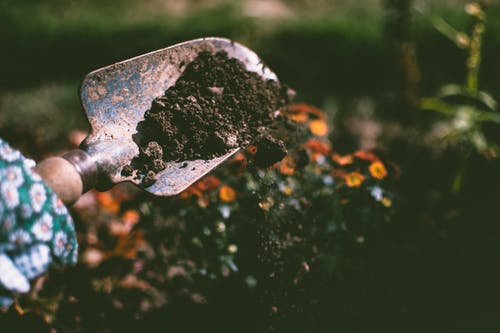
The environmental club, Stars on Earth, is working to raise awareness about compost bins on campus.
For the past three years, the Community Garden has provided compost bins on campus as an alternative to traditional waste disposal. Stars on Earth is working to raise awareness about these bins to encourage a more environmentally friendly attitude on campus.
Maya Ferrer, acting junior and publicist for Stars on Earth, said the recycling on campus has been very sparse, and it is Stars on Earth’s job to encourage change on campus.
“Stars on Earth is the campus’s environmental club. We’re the only environmental club on campus. It went away for a while, and we’re trying to bring it back to raise awareness about climate change, recycling, composting and saving the planet.” Ferrer said.
Ferrer said there has been an unfortunately small effort from the university to introduce recycling bins to campus because they are not placed in the right parts of campus.
“The apartment complex has one recycling bin in the laundry room, and although there are more bins in Methodist, the bins really need to be in Cokes because of the cooking.” Ferrer said. “I believe the University as a whole is very wasteful, and there are not very many steps being taken to make change.”
Nathan May, music theater sophomore and advisor for Stars on Earth, said a step toward pushing for this change is to popularize composting opportunities on campus to create a culture of eco-friendliness.
“Composting is taking waste from food or similar things and allowing it to break down so that the organic material can be put back into the ground and act as fertilizer for plants.” May said.
May and Ferrer said they were looking into introducing compost bins when they discovered that they already existed
“So, we found out there is composting that has already been happening at the garden, but the garden and composting in general has been under the radar in general for most students here,” May said. “We’re trying to raise awareness for that because there are students who already compost in their dorm rooms and we wanted to bring that to the community.”
May said the bins can be found outside the gardens behind the Oklahoma Children’s Theatre in a small black bin. Stars on Earth will rotate them occasionally throughout the semester and in late spring will empty them into the garden as a form of fertilization.
“In dumps a lot of times, they will have to put down these layers of plastic between trash every once in a while, so the toxic waste doesn’t seep into our water system, so the organic trash you throw in garbage never reaches our Earth. When you compost, you are turning this garbage back into soil and nutrients.” Ferrer said.
May said both raising awareness for big picture issues and taking small actions such as composting are valuable in the fight against climate change.
“While it can seem like, ‘woop-di-doo this one banana peel being thrown back in the cycle of nutrients,’ a lot of it is about increasing that awareness and building those small habits. If people get involved with doing that, it becomes more conscious in their mind, so they start thinking about the ecosystem in all parts of their lives.” May said.
Ferrer said small habits like composting are easy to introduce to people.
“The whole ‘existential climate change’ thing can seem very daunting, and it is very unpalatable to the general population, but by approaching in a way focused on small habits, not only are we helping to contribute to less waste, we are also cultivating respect for the planet. Small steps are a good way to bring this issue into people’s awareness that doesn’t seem radical.” Ferrer said.
May said getting the conversation going is the purpose to begin building momentum towards meaningful change.
Stars on Earth can be contacted at their Facebook page.


Leave a Reply